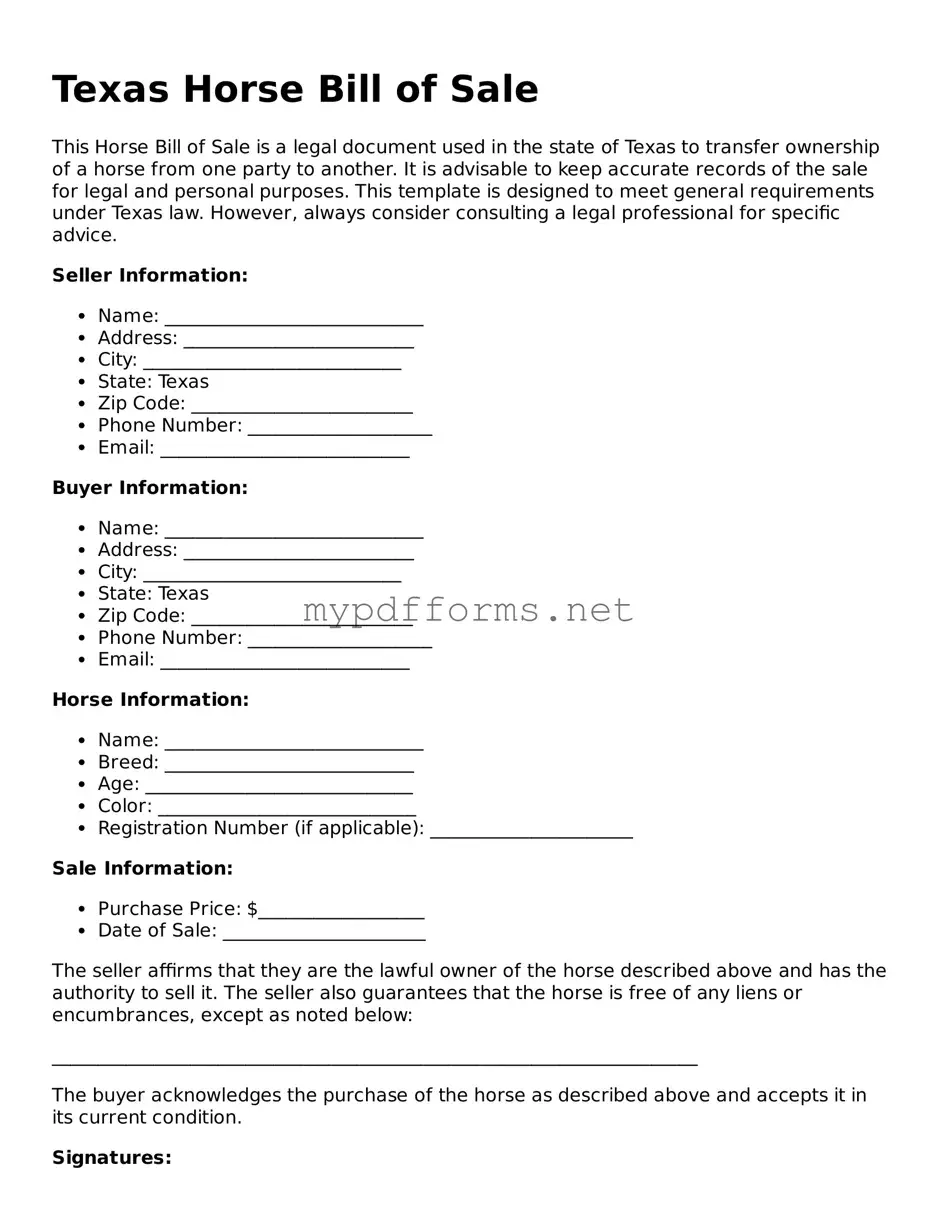Attorney-Verified Horse Bill of Sale Document for Texas
The Texas Horse Bill of Sale form is a legal document that records the sale and transfer of ownership of a horse in Texas. This form protects both the buyer and the seller by providing essential details about the transaction. To ensure a smooth process, consider filling out the form by clicking the button below.
Modify Document Here

Attorney-Verified Horse Bill of Sale Document for Texas
Modify Document Here

Modify Document Here
or
⇓ PDF
Need to check this off quickly?
Edit and complete Horse Bill of Sale online in just a few steps.